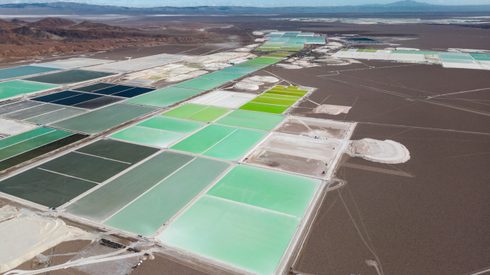Demand for critical battery raw materials such as lithium, cobalt and nickel has been increasing rapidly as the energy transition unfolds, with the shift to greener mobility gaining momentum.
Lithium, alongside other vital metals, is used in batteries that power electric vehicles (EV), demand for which is likely to surge in the near and medium term.
“Conserving those critical elements that are in such short supply is vital, and our goal is to keep 100% of lithium-ion batteries out of landfills. Once critical battery materials are pulled out of the earth at a great environmental and societal cost, we have a responsibility to conserve those elements for use again and again,” vice president of Global Marketing and Government Relations for Ascend Elements Roger Lin said to Fastmarkets on the sidelines of the recent International Battery Seminar, held in Orlando at the end of March.
Ascend Elements is a US-based lithium recovery company with plans to expand in Europe and in Asia.
“As a result of the growing EV market, lithium-ion battery recycling has emerged as a solution to mitigate the environmental impact of lithium-ion battery manufacturing while lessening our dependence on foreign mining and materials,” Lin added, highlighting that Ascend Elements’ recovery process substantially reduces the environmental impact of mining and refining virgin metals.
Lin said that Ascend Elements’ manufacturing process can produce cathode material with 93% lower carbon emissions, at approximately 50% of the cost compared with traditional cathode materials.
Other stakeholders in the sector have similarly suggested that perfecting recycling capacity would offer opportunities to recover key materials that are in short supply, from manufacturing scraps to end-of-life batteries. This would create a secondary supply of finite materials that would otherwise need to be freshly mined from a limited number of countries and transported to key-consuming regions with higher environmental costs.
According to Canada-based lithium-ion batteries recycling company Li-Cycle, the global lithium-ion battery recycling industry could have more than 3 million tonnes available for recycling by 2030, with the share attributable to transport increasing the most.
When asked about the timeline for recycled metals to be available in the mainstream, Ascend Elements’ Lin said that it is difficult to pinpoint how long it will take for recycled material to become a majority of the material used because it depends on overall market growth, but that once the lithium-ion market slows in growth recycled materials will become primary.
“It will be a significant market in just a few years,” he added.
Lithium price rally
Lithium chemical prices increased rapidly during 2021 and into 2022, mostly because demand from the EV sector outpaced supply.
But in recent weeks, domestic Chinese carbonate prices have retreated because of buyers’ reluctance to purchase at high prices and calls from China’s Ministry of Industry and Information Technology for lithium price stability.
Fastmarkets’ most recent assessment for lithium carbonate 99.5% Li2CO3 min, battery grade, spot price range exw domestic China was 480,000-510,000 yuan ($75,419-80,132) per tonne on Thursday March 31, widening downward by 10,000 yuan from 490,000-510,000 yuan per tonne a week earlier. The price was at $88,000-92,000 yuan per tonne on April 8 2021, according to Fastmarkets’ pricing archive.





